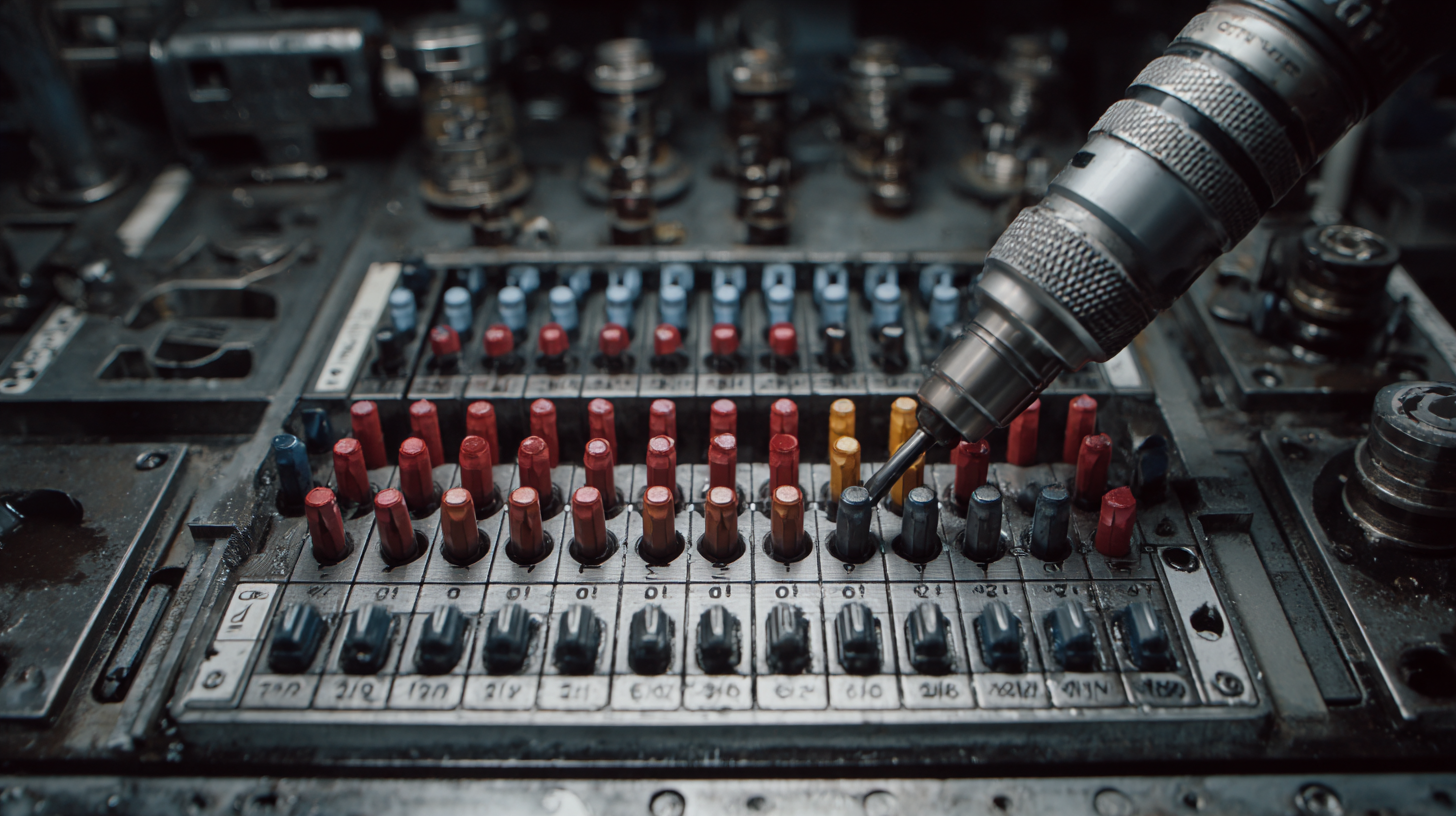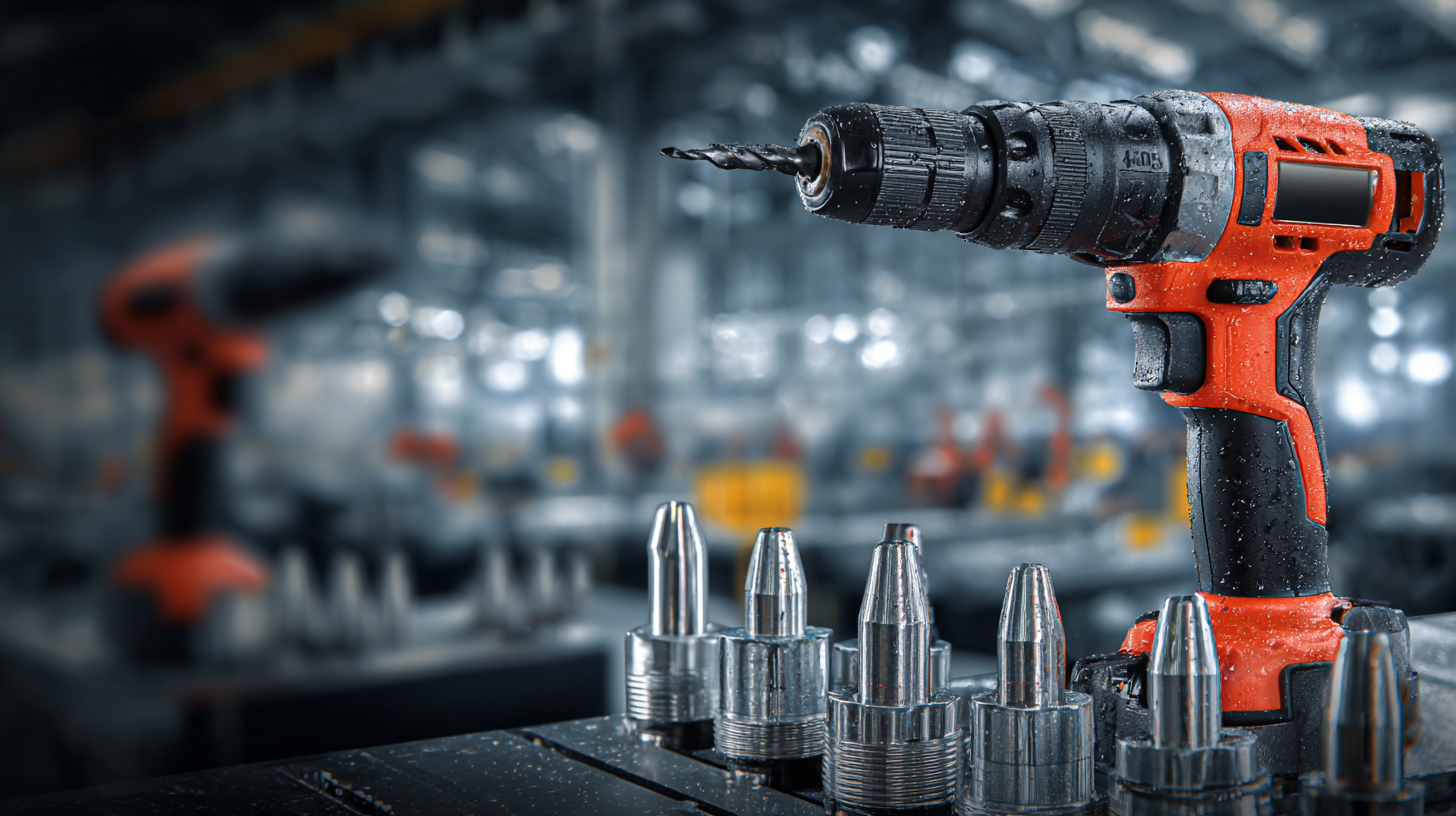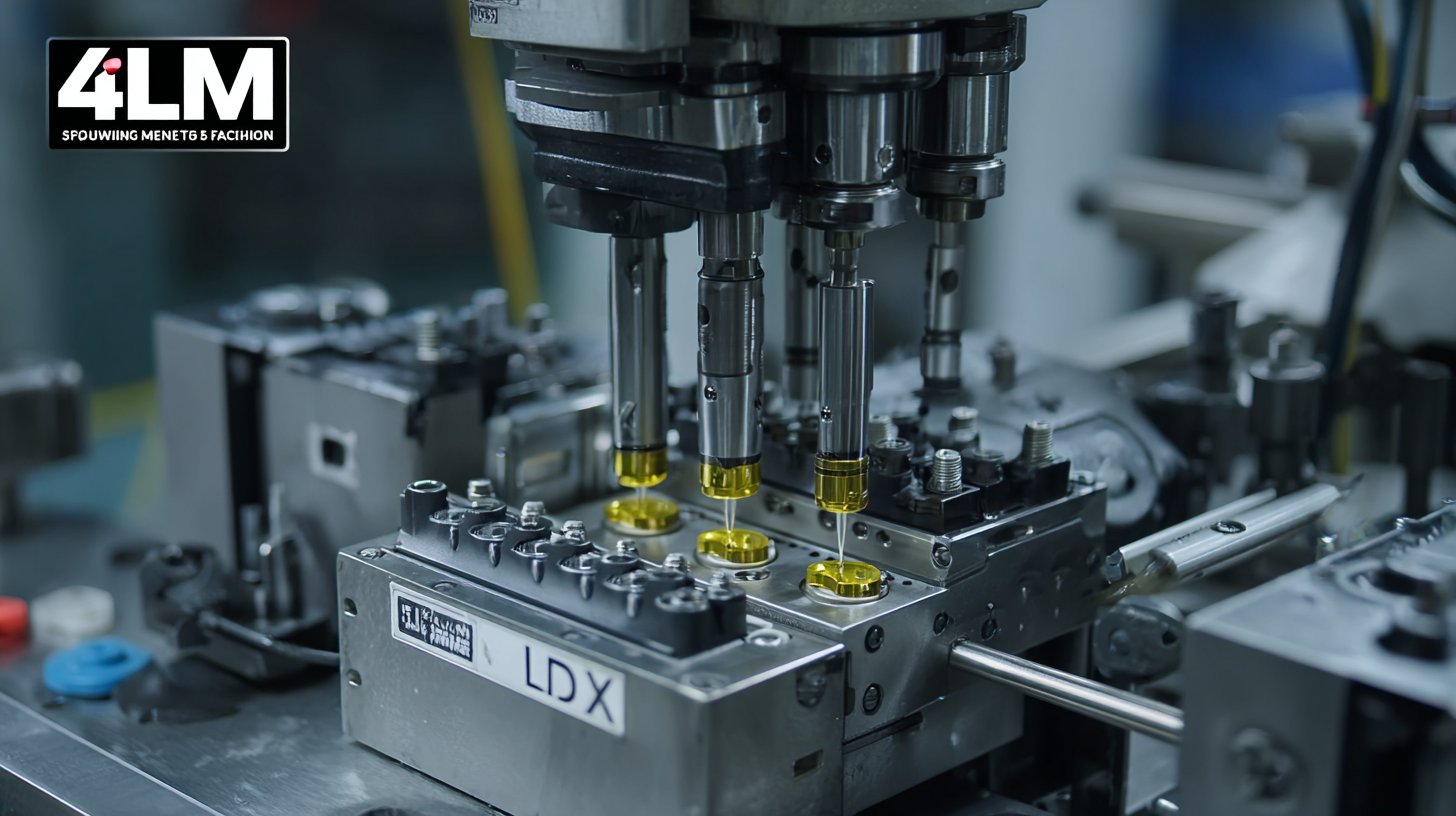
7 Essential Tips for Choosing the Best Screwdriver Machine for Your Factory
In today's fast-paced manufacturing landscape, the efficiency and precision of assembly processes are paramount, making the choice of the right equipment crucial. Among the vital tools in any factory, the Screwdriver Machine stands out for its ability to speed up assembly while ensuring accuracy. However, with the dizzying array of models and features available on the market, selecting the best screwdriver machine can be a daunting task for factory managers and decision-makers. This blog aims to provide you with seven essential tips that will simplify the selection process and help you identify high-quality manufacturers. Additionally, we will include a comparison of different types of screwdriver machines, ensuring that you have all the information needed to make an informed decision that enhances your production line's performance and meets your specific requirements.

Understanding the Different Types of Screwdriver Machines Available
When selecting a screwdriver machine for your factory, it’s crucial to first understand the various types available in the market. Broadly, screwdriver machines can be categorized into manual, pneumatic, and electric models, each designed to meet specific operational needs.
 Manual screwdriver machines are typically the most straightforward, offering basic functionality and ease of use, making them ideal for small-scale operations or less frequent applications.
Manual screwdriver machines are typically the most straightforward, offering basic functionality and ease of use, making them ideal for small-scale operations or less frequent applications.
On the other hand, pneumatic screwdriver machines are powered by compressed air, providing faster speeds and higher torque output. They are perfect for assembly lines where speed and efficiency are paramount. Meanwhile, electric screwdriver machines combine portability with power, suitable for both light and heavy-duty tasks. With the added convenience of battery-operated models, they enhance flexibility on the factory floor. Understanding these classifications will empower you to choose the right machine that not only aligns with your production goals but also optimizes performance and productivity.
Key Features to Look for in High-Quality Screwdriver Machines
When selecting a high-quality screwdriver machine for your factory, it's crucial to focus on several key features that can significantly enhance your production efficiency. One primary aspect is the torque control; machines with precise torque settings can reduce the risk of damaging components while ensuring the screws are securely fastened. According to a report by MarketsandMarkets, industries that utilize advanced torque technology can experience up to a 30% reduction in assembly errors, marking a considerable improvement in operational efficiency.
Another important feature to consider is the machine's speed and adaptability. In a rapidly evolving manufacturing environment, a screwdriver machine that boasts variable speed control enables factories to switch between different tasks seamlessly. According to industry analyses, factories that have adopted flexible automation experiences a 25% increase in productivity. Furthermore, look for machines equipped with user-friendly interfaces and integration capabilities with existing systems, as this can streamline training processes and minimize downtime during transitions. Enhanced features not only optimize performance but also provide a competitive edge in meeting market demands effectively.
7 Essential Tips for Choosing the Best Screwdriver Machine for Your Factory
| Feature | Description | Importance |
|---|---|---|
| Power Source | Choose between electric, pneumatic, or battery-operated for efficiency and suitability. | High |
| Torque Settings | Adjustable torque settings allow for flexibility in various applications. | Essential |
| Ergonomics | A comfortable grip and balanced design reduce operator fatigue during extended use. | High |
| Speed Control | Variable speed control enhances precision and control based on task requirements. | Important |
| Durability | Materials and construction quality should withstand heavy-duty use in factory settings. | Critical |
| Maintenance | Ease of maintenance and availability of replacement parts to minimize downtime. | Essential |
| Safety Features | Incorporation of features like overload protection and safety guards for user protection. | High |
Evaluating the Ergonomics and User-Friendliness of Screwdriver Machines
When selecting a screwdriver machine for your factory, evaluating ergonomics and user-friendliness is paramount. A well-designed machine not only enhances productivity but also minimizes the risk of operator fatigue and injury.
Look for models with adjustable handles and grips that cater to operators of different heights and hand sizes. Machines that incorporate features like anti-vibration technology can significantly reduce strain during prolonged use, ensuring a comfortable working environment.
User-friendliness should also be a key criterion in your selection process. Machines with intuitive controls, clear displays, and quick-change mechanisms facilitate smoother operations and reduce the learning curve for new employees. Additionally, consider models that offer easy access to maintenance points; this reduces downtime and ensures that the machine remains in optimal working condition.
Prioritizing ergonomics and user-friendliness not only improves workplace efficiency but also promotes a safer and more enjoyable experience for every operator.
Assessing the Manufacturer's Reputation and Service Support
When selecting a screwdriver machine for your factory, it's crucial to assess the manufacturer's reputation and service support. A 2021 survey by the Manufacturing Institute revealed that nearly 60% of manufacturers prioritize supplier reliability and service availability when making purchasing decisions. A reputable manufacturer not only provides quality machinery but also ensures that their support services can promptly address any issues that arise, minimizing downtime and maintaining production efficiency.
Moreover, a strong service support system is essential for long-term operational success. According to a report by IndustryWeek, factories that choose suppliers with robust customer service have reported a 25% increase in productivity due to fewer machine malfunctions and faster response times. By investigating the experiences of other users with a manufacturer’s service support, you can gauge how well they respond to repairs, maintenance, and parts availability. This critical assessment can help you avoid costly disruptions and ensure that your factory remains competitive in an increasingly demanding market.
Cost vs. Value: Making an Informed Investment in Screwdriver Technology
When investing in screwdriver technology for your factory, it’s vital to weigh the cost against the value it brings to your operations. A lower initial price might seem appealing, but it often comes with hidden costs such as increased maintenance, lower durability, or inadequate performance. Investing in a high-quality screwdriver machine offers not just efficiency and reliability, but also reduces the total cost of ownership over time. Higher upfront expenses may lead to substantial savings through enhanced productivity and decreased downtime, making them a more valuable option for businesses looking for long-term gains.
 In addition to performance and durability, consider the technological advancements integrated into modern screwdriver machines. Features such as precision torque control, automation capabilities, and real-time data monitoring can significantly elevate manufacturing processes. These innovations not only improve the quality of work but also facilitate easy scalability and customization for diverse production needs.
In addition to performance and durability, consider the technological advancements integrated into modern screwdriver machines. Features such as precision torque control, automation capabilities, and real-time data monitoring can significantly elevate manufacturing processes. These innovations not only improve the quality of work but also facilitate easy scalability and customization for diverse production needs.
When you factor in these elements, it becomes clear that focusing on value rather than just initial cost will yield better outcomes for your factory's operations. By making informed decisions based on both cost and value, you can ensure your investment in screwdriver technology pays off well into the future.
